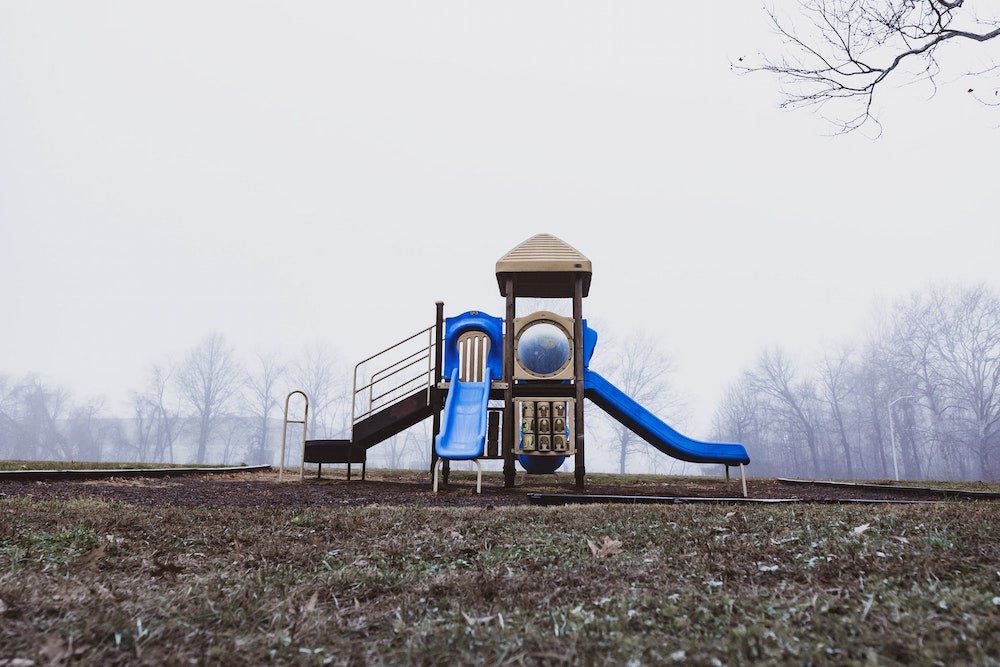Make recess great again
The case to get kids moving more at school and at home.
Post summary
Childhood obesity has more than doubled since the 1990s and 20 percent of kids are now obese while 28 percent are pre-diabetic.
This is why the new administration wants to overhaul school lunches to make them healthier.
Healthier school lunches will help.
But the removal of recess and unsupervised play is also a big reason kids are facing an obesity and health crisis.
Not to mention, recess and unstructured play are powerful beyond just weight. They influence learning, mental health, social development, and physical health.
We’re diving into the power of recess and unsupervised play, debates about exercise and weight loss for kids, and much more.
Housekeeping
Full access to this post is for Members of Two Percent. Here’s everything Membership gets you. Become a Member of Two Percent here:
Thanks to our partners, who make the best products in their categories.
Maui Nui Venison: Provider of the world’s healthiest meat (the research, linked here, is wild). My go-to: Organ blend 90-10 and pepper venison jerky sticks.
GORUCK: Maker of the best rucking gear (not stuff). Check out the Rucker 4.0.
Momentous Nutrition: The company that made me feel good about supplements again. My picks: Essential Plant Protein + Multivitamin.
Discount code EASTER for all brands.
Audio/podcast version
The post
Robert F. Kennedy Jr. is promising to “get processed food out of schools ‘immediately’” as part of his possible role in the new administration.1
It’s a worthwhile endeavor. Nearly 20 percent of American kids are now obese. Of course we should make school lunches healthier.
But I worry we’re missing an equally important half of the health coin.
When I was in elementary school in the early 1990s, my school cafeteria served us all varieties of ultraprocessed sludge: pizza, chicken nuggets, fries, chocolate milk, mystery meat, donuts, etc.
Yet the obesity rate was much lower then, between five and ten percent.
So what changed, both at school and home?
Recess and play.
Recess is being eliminated or shortened in school districts nationwide, and unstructured, unsupervised play after school has also plummeted.
Seeing kids outdoors playing with no adult supervision is apparently now so odd that some states have had to pass “free range parenting” legislation. These laws protect parents from being charged with child neglect if they let their kid go outside and play unsupervised.
My friends and I got an hour of recess that we’d spend running our butts off playing tag. I’d bet we all covered at least five miles during recess.
After school, we’d go outside and play more games and sports. My mom’s only request was that I tell her where I was going and to be home for dinner.
Removing activity from kids’ days is likely a significant factor in the rising rates of obesity among kids.
I recently posted as much online. Many people agreed—and many people offered smart additions or pushback.
Today we’ll cover:
Whether more exercise would help fight rising obesity rates among kids (there’s some debate here).
The truth about today’s school lunches.
The mental health, learning, and development impacts of less play and exercise.
Would more recess and play help kids’ weight?
The wise Duke University researcher Herman Pontzer weighed in on my post:
I’m a fan of Herman’s work—and I told him that in a reply.
I do think Herman is correct that exercise isn’t a great way for most people to lose weight. It takes a lot of exercise (here’s how much).
Herman developed what’s called the constrained energy expenditure model. It states that when we burn more calories from exercise, our bodies compensate and burn fewer calories elsewhere.
For example, after exercise, your body dials back internal processes and you move less throughout the day. The important part is that this happens unconsciously—we don’t realize it’s happening. It’s an ancient survival mechanism that saved calories when humans lived in food scarcity.
This means that if you were to burn 100 calories from exercise, your body wouldn't actually burn 100 more total calories during the day.
But other research shows that this “compensation” isn’t a one to one—it’s not like if you burn 100 calories from exercise your body then compensates perfectly and saves 100 calories elsewhere.
Here’s what the numbers say and why it matters for kids:



